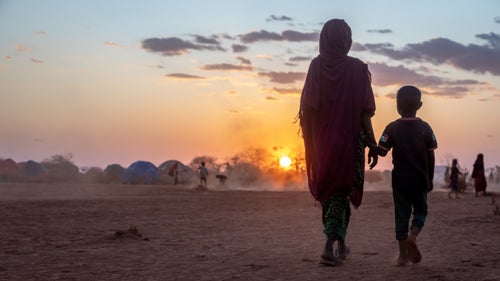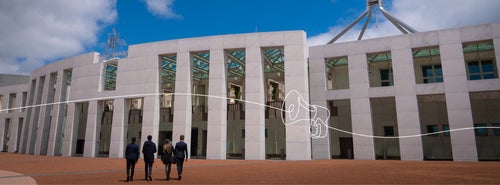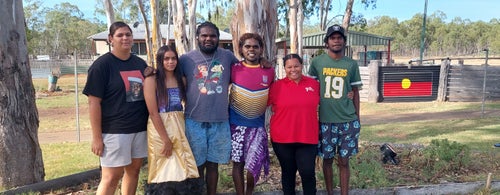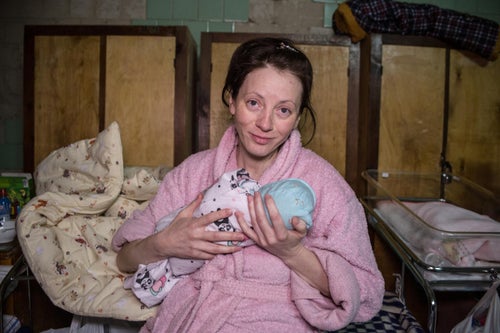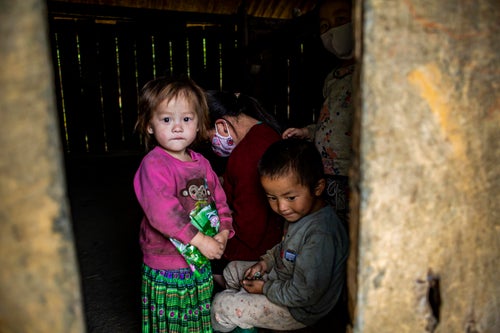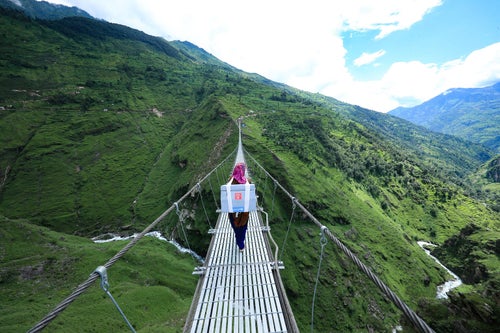More than 70 years ago, UNICEF was created to bring life-saving aid, support and protection to children in the aftermath of World War II. Today, a look through the photo archives reveals both striking parallels and immense progress.
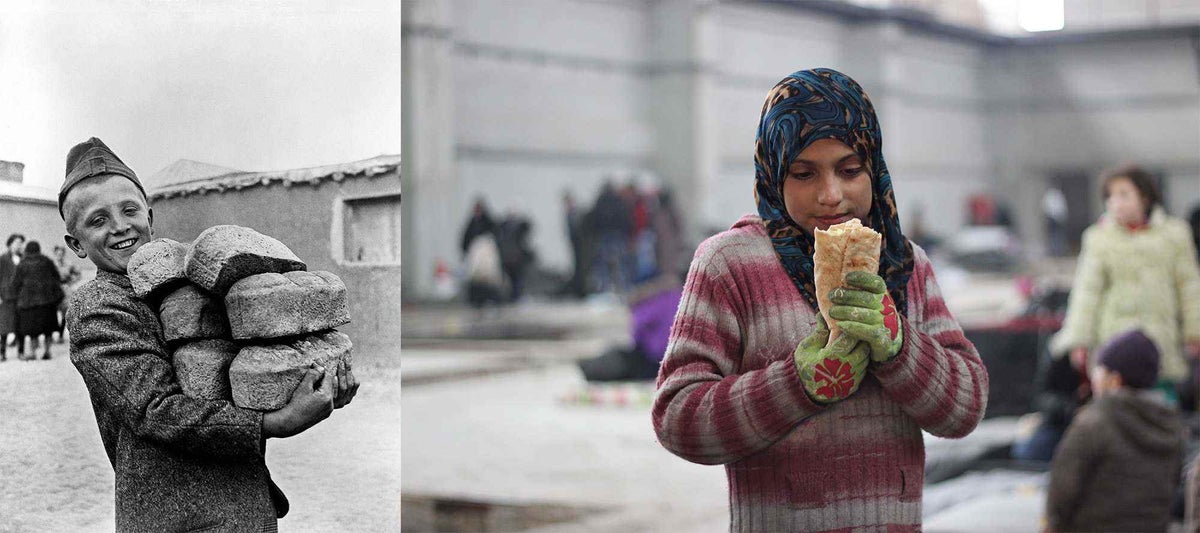
Left: In 1946, a young boy carries loaves of breads in Poland as the nation reels from the devastation of World War II. Millions of children throughout Europe and Asia had endured years of brutal violence and deprivation and now, they urgently needed food, clothing and health care. UNICEF was founded in the same year to deliver these life-saving supplies, to help communities rebuild and to restore hope for a better future.
Right: In 2016, a girl eats bread on the outskirts of Aleppo, Syria, caught in the greatest humanitarian crisis of our time. She was sheltering in a cold, damp warehouse where the deafening noise of explosions and heavy weapons rang through the air. Families shared memories of destruction and the smell of dead bodies under the rubble. Many children in besieged east Aleppo had been surviving on only most the basic foods for months. One seven-year-old girl was so excited to see food being distributed that she screamed out, “look Mum, this is real bread!”. UNICEF is providing energy biscuits and other high nutrient foods, safe water and medical care to Syrian children with no other options.
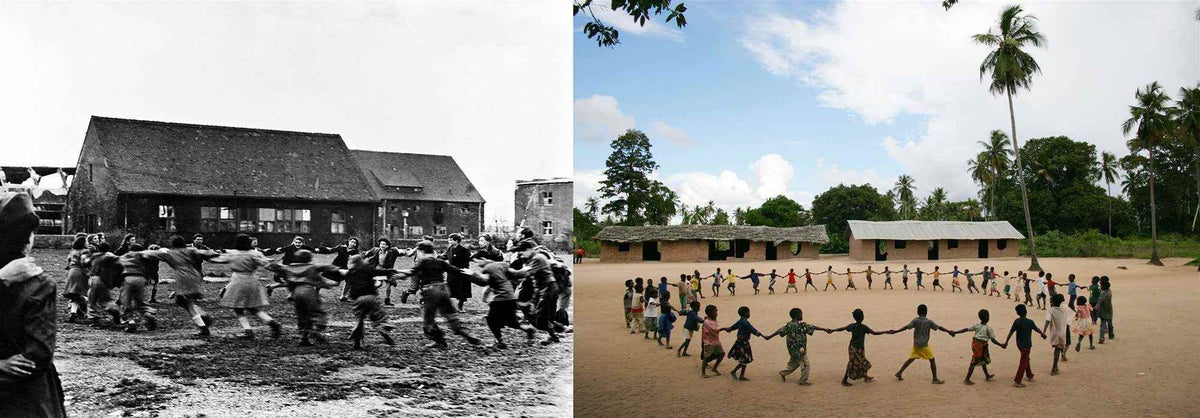
Left: In 1946, children perform a folk dance at an army camp in Germany. Most had lost their parents in concentration camps.
Right: In 2006, children play at a school in one of the poorest districts of Mozambique. Play, sport and rest are not luxuries - they are every child’s right. Play can teach children life-saving lessons, help them recover from trauma and give them the skills they need to live together peacefully. That’s why UNICEF works with the Government of Mozambique to create ‘child-friendly’ schools where students have the freedom to socialise, relax and simply be kids.
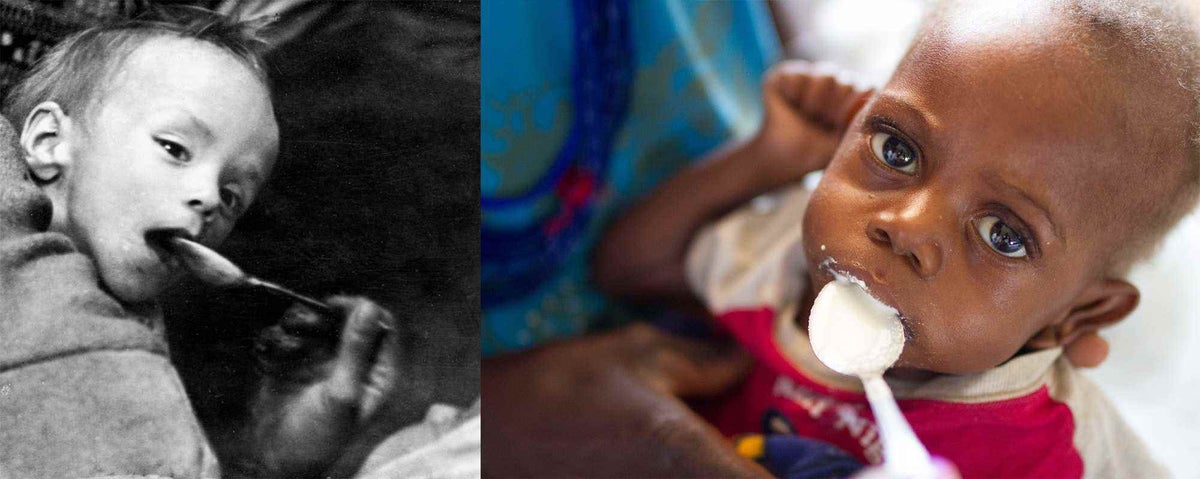
Left: In 1946, a severely malnourished boy is fed with a spoon in Greece. In the years after World War II, UNICEF became known as ‘milkman to the world’ as it delivered nutrition in schools, clinics and refugees camps.
Right: In 2016, Tuhafeni feeds on therapeutic milk after being hit hard by an extreme cycle of droughts and floods in Angola. As crops and livestock perished, the 18-month-old boy was left without enough nutritious food and developed severe acute malnutrition. Tuhafeni and 11,513 children like him have been treated in UNICEF's therapeutic feeding programmes in Angola this year. Nutritional support and other lifesaving interventions have helped reduce the number of children dying before their fifth birthdays by more than half in the last 25 years.
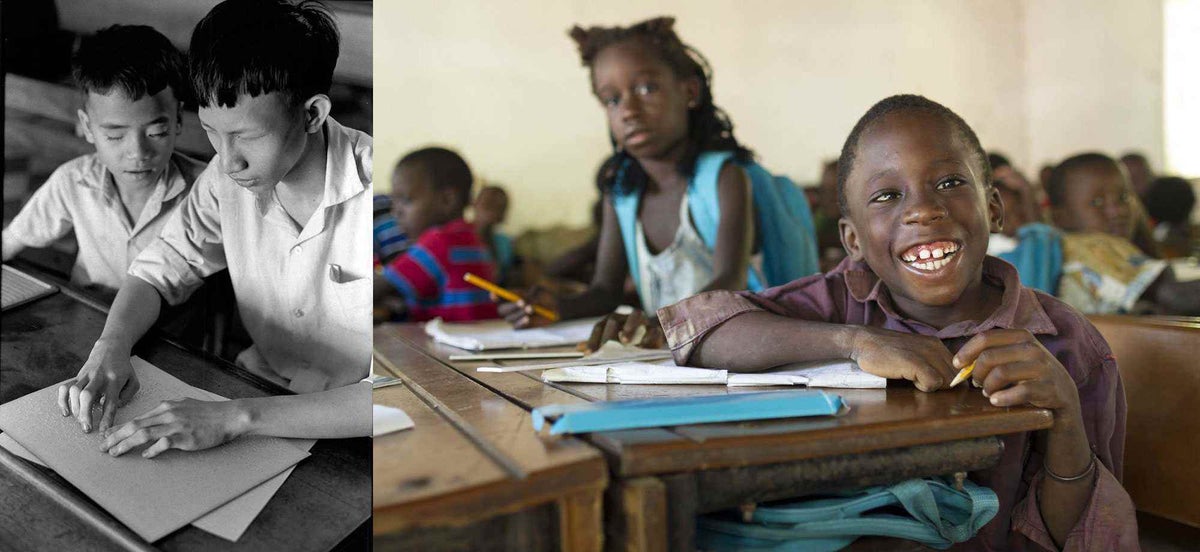
Left: In 1972, two boys who are blind read Braille in South Vietnam. Despite the challenges of war, special schools were established to help children living with disability realise their right to learn.
Right: In 2014, Usher learns at a UNICEF-supported school in Guinea Bissau. The seven-year-old boy has been welcomed into an inclusive classroom where he learns as an equal alongside his peers. “Usher has a good brain,” says his teacher, Antonio. “He just has difficulty with his motor coordination. I know Usher is capable of succeeding, especially if I keep working with him.” Since 1990, the number of children missing out on primary school has dropped by 44 per cent and, today, girls and boys are learning in equal numbers in 129 countries.
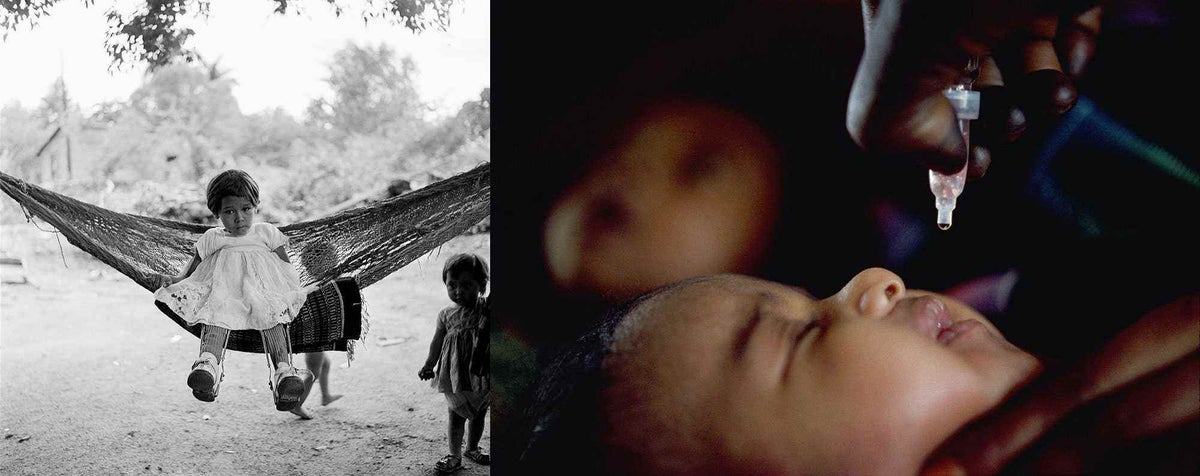
Left: In 1960, three-year-old Concepcion swings in a hammock in rural Mexico. The polio virus had weakened her limbs and left her reliant on leg braces but UNICEF supported a health centre where Concepcion regularly went for treatment.
Right: In 1991, a baby receives a dose of oral polio vaccine in a children’s clinic in Khartoum, Sudan. As the world’s largest supplier of vaccines to developing countries, UNICEF has played a leading role in the global effort to eradicate polio. Together with partners, governments and thousands of community health workers, UNICEF has helped to reduce polio cases by an incredible 99% since 1988 - one of the greatest achievements in the history of public health.
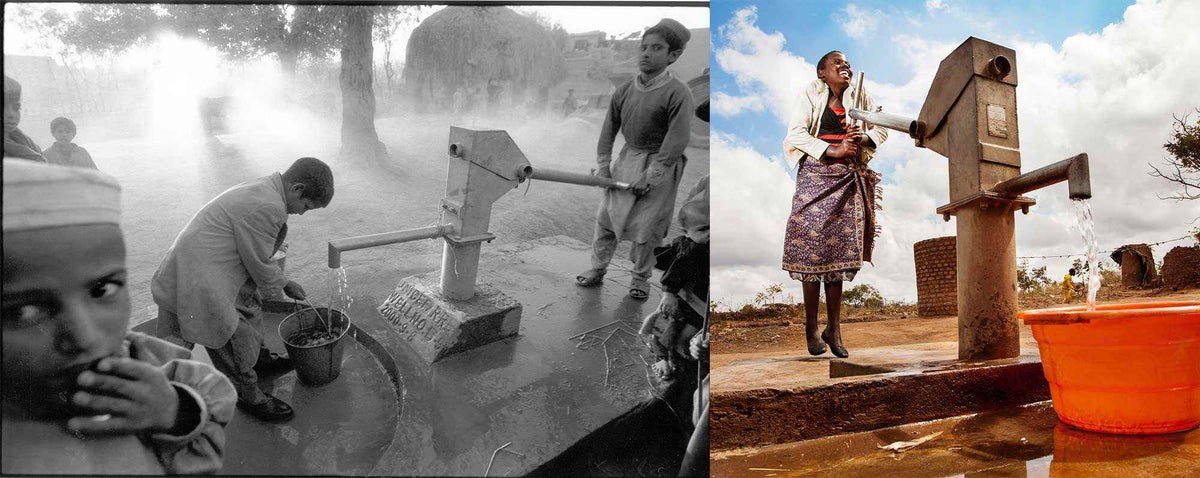
Left: In 2000, two boys collect water from a hand pump supplied by UNICEF in Afghanistan. Conflict and severe drought had left 100,000 people displaced and millions living in difficult conditions but UNICEF provided water and sanitation facilities on a massive scale.
Right: Much more recently, 12-year-old Kosalata smiles with the simple joy of safe and abundant water. Before this borehole was installed, her family had to collect dangerous water from shallow wells. "People were getting diarrhoea, dysentery and even cholera," her mother explained. "We got a borehole back in 2011, and since then, people don’t get sick because of the water.” Since 1990, 2.6 billion people have gained access to improved drinking water and sanitation facilities.

Left: In about 1950, a young boy holds a blanket supplied by UNICEF in the Greek town of Castoria.
Right: Generations later, Lamar joyfully squeezes a blanket in the former Yugoslav Republic of Macedonia. The four-year-old girl had lived her entire life in the Syrian conflict and lost everything when her family's home was burned to the ground. UNICEF met Lamar while she was on the road with her mum, making the gruelling, two-month journey to be with her dad in Germany. They stopped at UNICEF’s 'child-friendly space' for some rest and support on a hot day, and said one thing would give them the courage to keep going: the hope of reuniting their family and starting life again in peace.
Now more than ever
From the ashes of World War II to the global refugee crisis today, UNICEF has never given up on children in crisis.
UNICEF supporters can be proud of what we’ve achieved together. Every child saved from disease or malnourishment, every girl learning in school and every family escaping crushing poverty is a victory worth celebrating.
We simply could not have done these things without our donors. UNICEF receives no funding from the United Nations so our work has been possible through generous donations.
More than seventy years on, we are working harder than ever to give a fair chance for every child. We look ahead, with hope and determination, to a better future for all the world’s children.
Stand by children
UNICEF Australia has an amazing group of supporters called Global Parents who make an ongoing pledge to protect and support children living in crisis and poverty. By signing up with a monthly gift, our Global Parents make a beautiful commitment: that wherever a child is born and whatever comes their way, we'll give them a life, a chance, a choice.
You can help us continue this critical work for kids, wherever the need is greatest.
Related articles
Stay up-to-date on UNICEF's work in Australia and around the world







